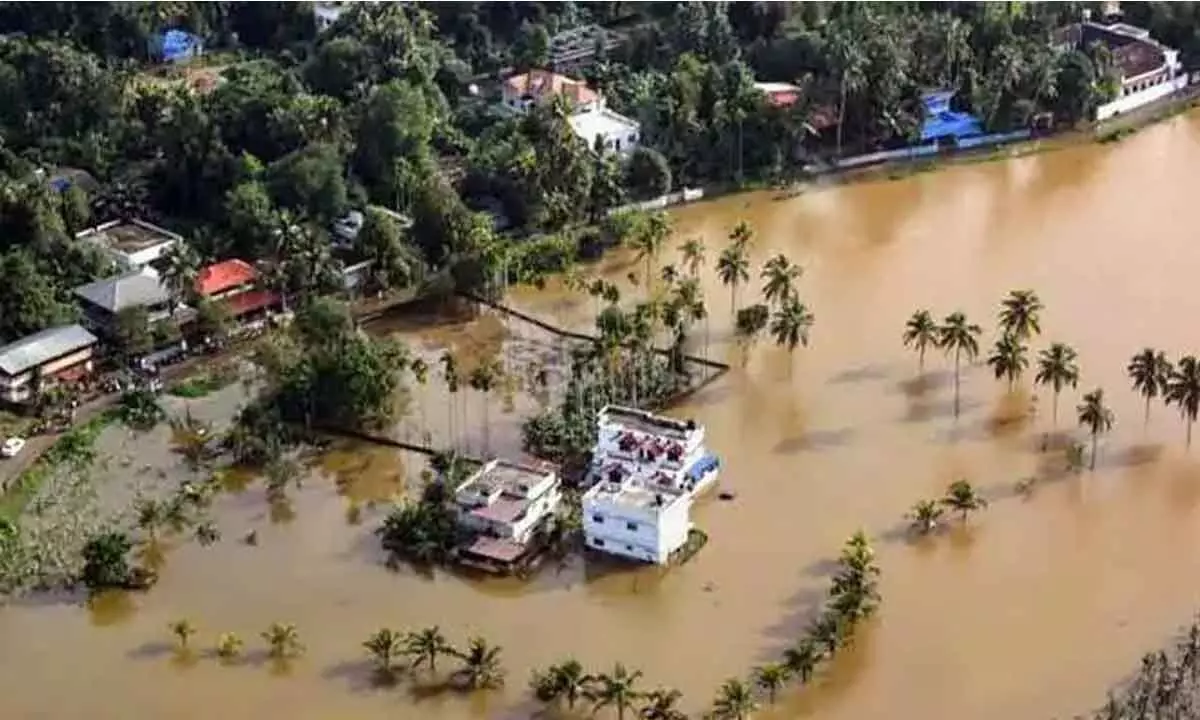Lackadaisical management of flood risks

There is no magic wand to stop floods. But the big question is why floods are turning more severe and unpredictable?
There is no magic wand to stop floods. But the big question is why floods are turning more severe and unpredictable? According to official figures, in 2018 alone India suffered damages worth over Rs 950 billion due to floods.
Earlier areas in and around river basins used to witness serious floods but now urban floods have risen due to poor drainage and encroachment of old water bodies of cities and towns.
It has become a routine for state governments to open relief camps, shift people there to avoid loss of life and once the water levels recede they forget about it till next year. Though several agencies are involved in flood control, there is a clear lack of coordination among them in the management of floods. The big question is why governments do not spare some time to discuss such issues in legislatures and find a long-term solution to them. Can they not accelerate flood resilience, build capacity and promote sustainable development? Why don't the governments, whether it be the Centre or states, realise the need for effective institutional management for effective flood management?
According to data presented in the Rajya Sabha, in 2018 India lost 1,808 lives and suffered losses worth an estimated Rs 957 billion (Rs 95,736 crore) due to floods across the country. Between 1953 and 2011, on an average, floods claimed 1,653 lives every year and caused losses – including houses, public property and crop damage – of Rs 36.12 billion (Rs 3,612 crore every year). This figure of the 40 to 50 million hectares of flood-prone area is about four decades old. This figure is related to notified riverine flood areas. Now in the last few years, the form and extent of floods has changed a lot and now our towns are also getting inundated. Therefore, we need to map the entire flood-prone areas again to get a realistic picture.
What is happening in the name of disaster management in all the states which are prone to floods across the country is officials open relief camps, politicians visit the affected areas, make some promises which remain unfulfilled and once flood fury subsides everyone forgets it till next floods.
With the increase in population and development activity, there has been a tendency to occupy the floodplains, which has resulted in damage of a more serious nature over the years. Flooding is caused by the inadequate capacity within the banks of the rivers to contain huge inflows from upper catchments due to heavy rainfall. Flooding is accentuated by erosion and silting of the riverbeds, resulting in a reduction of the carrying capacity of river channels.
The governments never thought of having separate channels for rainwater and sewerage water. Forty years back, the National Commission on Floods estimated that the total extent of areas liable to flooding is about 40 million hectares. Now it must be much more.
The Centre and the states should in coordination work towards strengthening embankments, construct flood walls, sea walls, natural detention basins, improve water channels and drainage system and diversion of flood waters.
The authorities should understand that more significant than the loss of life and damage to property is the sense of insecurity and fear among the people living in the floodplains. The after-effects of flood, such as spread of disease, loss of dwellings, make floods the most feared of the natural disasters faced by humankind.
Let's hope politicians will devote some time towards such issues and give good governance. Of the five-year term, they spend about half the time accusing each other and drawing strategies to be back in power. It's time they changed. Only then will 'Achhe Din' dawn on the country.








